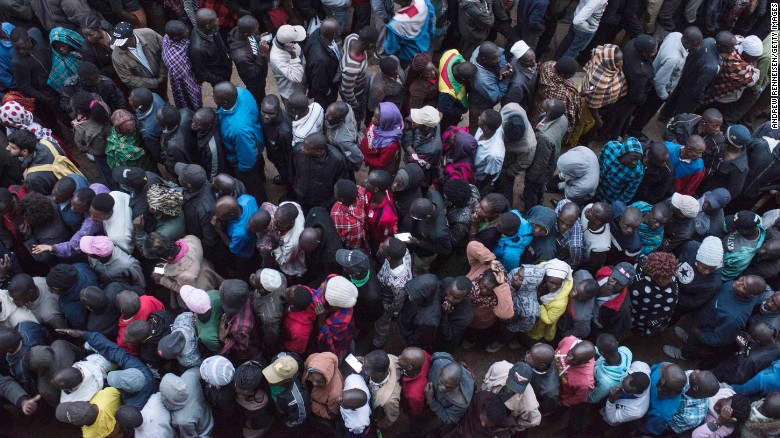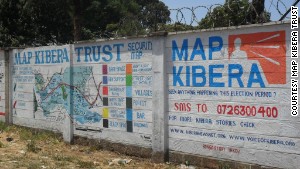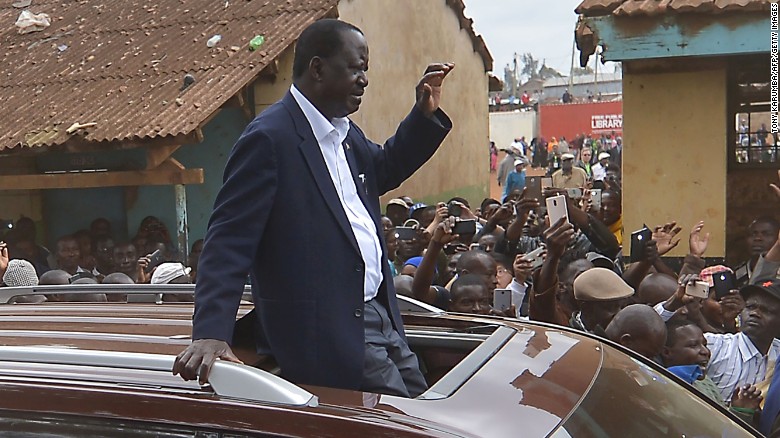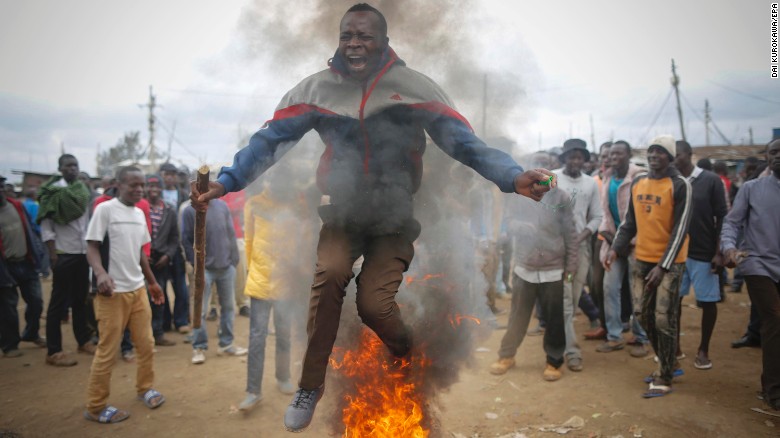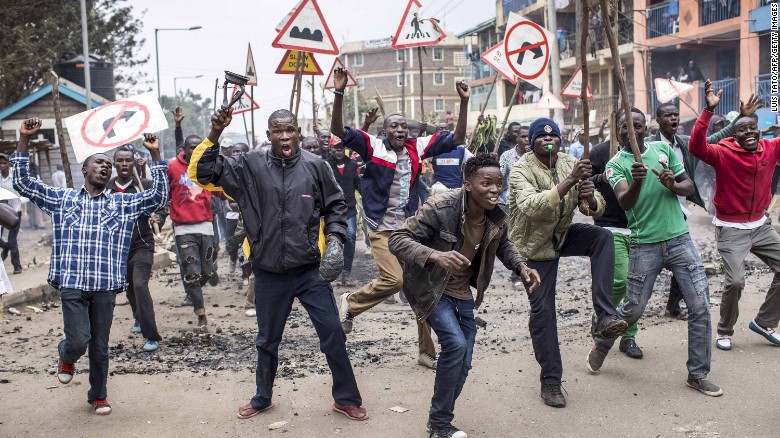 Kenyan opposition leader Raila Odinga is disputing early results in the country’s presidential election that put his long-standing rival, incumbent President Uhuru Kenyatta, ahead.
Kenyan opposition leader Raila Odinga is disputing early results in the country’s presidential election that put his long-standing rival, incumbent President Uhuru Kenyatta, ahead.
The Kenyan election commission’s website showed that with 97% of stations reporting, Kenyatta was leading with 54.32% of the votes to Odinga’s 44.8%. Eight candidates were in the running for the presidency but no other challengers have received more than 0.3% of votes.
Odinga’s complaints of election irregularities have stoked fears of aggrieved supporters taking to the streets in a scenario reminiscent of 2007’s post-election violence.
Confrontations between police and protesters in Nairobi and the western city of Kisumu have been reported and they have drawn concern from human rights activists.
“Police have a duty to protect people from harm, but they must not use the violent acts of a few to restrict the right of others to protest peacefully. They must also ensure the safety and rights of independent election observers, and media reporting on the results,” said Muthoni Wanyeki,, Amnesty International’s Regional Director for East Africa, the Horn and the Great Lakes.
“Political leaders must also play their part by publicly urging their supporters to refrain from violence.”
Final results from Kenya’s Independent Electoral and Boundaries Commission (IEBC) are expected to be released in the coming days — officially, the agency has a week to declare — but it appears Kenyatta, who leads the Jubilee Alliance, is on track for an outright win, which requires one vote more than 50%.
But in a televised news conference on Wednesday morning, Odinga, a 72-year-old former political prisoner, flatly rejected the preliminary results as “fictitious” and “fake” while arguing that the election authority’s systems had been “hacked” to manipulate the results in his rival’s favor.
The fraud Jubilee has perpetuated on Kenyans surpasses any level of voter theft in our country's history. This time we caught them.
— Raila Odinga (@RailaOdinga) August 9, 2017
Odinga, who is running for a fourth time, alleges hackers infiltrated the IEBC systems using the identity of Chris Msando, a top election official who was tortured and murdered a week before the vote.
“What the IEBC has posted as results of the Presidential Elections is a complete fraud based on a multiplier that fraudulently gave Uhuru Kenyatta votes that were not cast,” he said in a series of tweets. “We have uncovered the fraud. Uhuru must go home. The IEBC must be fully accountable,” he added.
Over 400 international election observers — including officials from the US and the European Union — were deployed across the country to monitor voting, the tallying process and some of the post-election period.
An EU overseas mission monitor told CNN the group would present its preliminary findings at a press conference on Thursday.
The heads of the international election observation missions in a statement Wednesday urged all parties to follow the tallying process and also called for proper security and the avoidance of “excessive use of force.”
It urged candidates and parties “to use the legally provided channels of dispute resolution in case of any dissatisfaction with the process and to urge their supporters to remain calm.”
The missions said some teams are on the ground and observing the post-election period. The missions include teams from the EU, the African Union, the Carter Center and International Conference of the Great Lakes Region.
“The IEBC has put in place a process to provide for the integrity and transparency of the elections that should be allowed to continue. To achieve this, IEBC personnel need to be able to work freely in a secure environment, with time to complete the process,” the joint statement said.
We will compensate polling stations that opened late with the same amount of time lost. All will vote
— IEBC (@IEBCKenya) August 8, 2017
Kenya’s last election in 2013 was mainly peaceful, but a decade ago, the country plunged into widespread violence in the aftermath of the 2007 vote.
More than 1,000 people were killed in months of ethnic violence in the aftermath of the 2007 vote when Odinga — defeated by then-President Mwai Kibaki — also claimed the vote was rigged.
Tuesday’s election was a peaceful and enthusiastic affair with a huge turnout and a few minor delays and technical issues reported. Several polling stations that were affected by delays were kept open until almost midnight to ensure that all could vote.
In response to Odinga’s claims, IEBC Chairman Wafula Chebukati said it appears the opposition’s issues stem from results transmission rather than with the whole election. He reminded voters that the results being displayed online are not final figures.
Kenyan law states that electronic reporting must be double-checked and verified by physical paper forms from polling stations before the IEBC can declare a winner. Chebukati said the voting authority intends to uphold that requirement.
“We set up a system which has carried us through and when Kenyans went to vote, it worked for them, it worked for us — the IEBC,” he said.
“The system is set up to do results transmission but we have had concerns raised and we cannot as a commission ignore those concerns. We want to look at the original forms, verify and at the end of the day, do an audit and those (hacking) questions will be answered.”
The Kenya Human Rights Commission, too, denounced the “unverifiable results” which if left unaddressed could “create serious political instability.”
The statement from the independent organization included several examples of discrepancies between the preliminary results on the IEBC website and the original paper copies signed by party agents at various polling stations.
The IEBC and opposition have called for calm and are urging voters to “maintain the peace” while the final results are being tabulated.
But as Odinga cried foul on Wednesday, reports were emerging of pockets of protests in three opposition strongholds.
Two protesters were shot and killed by police in the slum area of Mathare on the outskirts of Nairobi, two sources who aren’t being named for their safety told CNN.
“Police fired straight at the people… One man was shot in the head, another man was shot in the chest,” said one witness, who lives on the street where about 40 demonstrators were gathered. The protesters then fled leaving the bodies lying in the street, the same source said.
In the Kibera slum in Nairobi, a community leader who runs a local NGO said protests have now spread there too. He estimated some 1,000 people were demonstrating, with the unrest “gaining momentum.”
In Kisumu’s Kondele area, a local journalist told CNN that riot police were on the scene engaged in “running battles” with a group of around 500 to 600 “agitated youths.”
Odinga was born in Kisumu area, a Luo region in western Kenya, a Luo himself, Odinga is very popular in the city. Kenyatta is an ethnic Kikuyu — largest of the country’s more than 40 ethnic groups.

























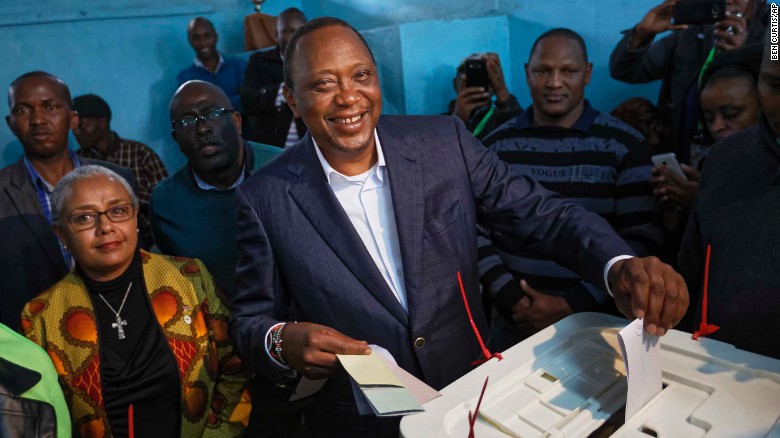 Kenyatta casts his vote alongside his wife Margaret on Tuesday.
Kenyatta casts his vote alongside his wife Margaret on Tuesday.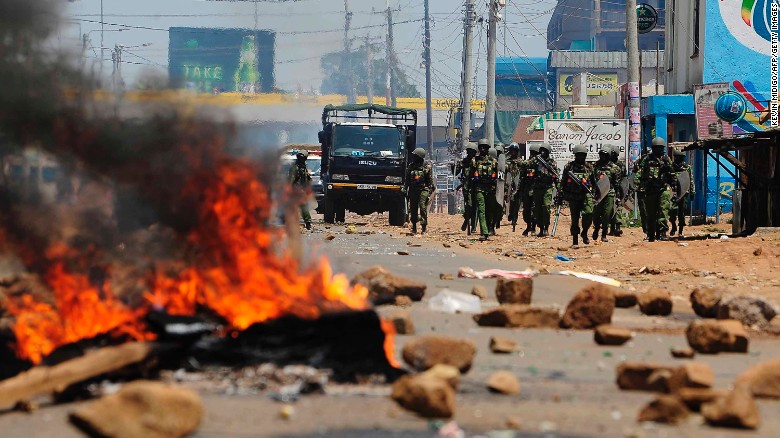 Kenyan security personnel walk towards burning tire barricades on a road in Kisumu after clashes between opposition support and police on Wednesday.
Kenyan security personnel walk towards burning tire barricades on a road in Kisumu after clashes between opposition support and police on Wednesday.